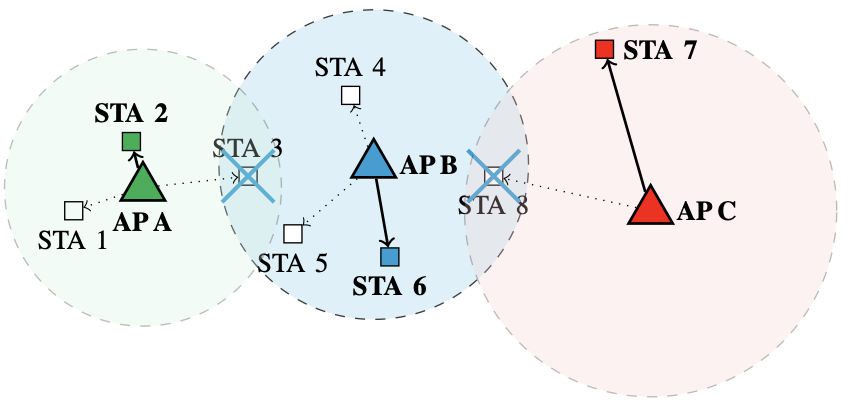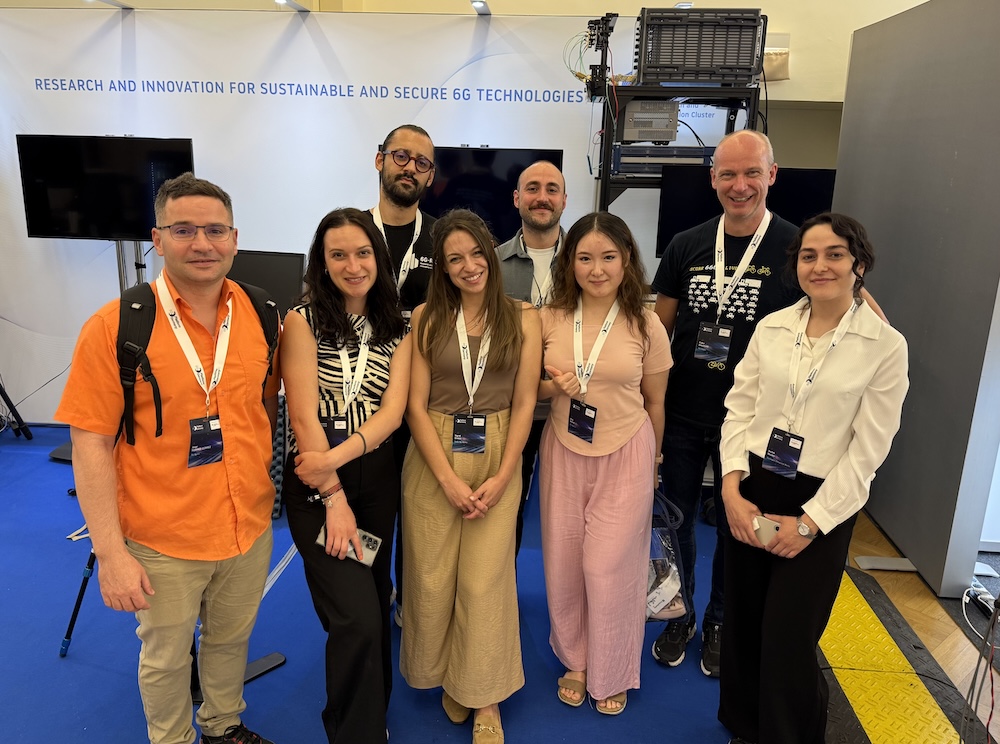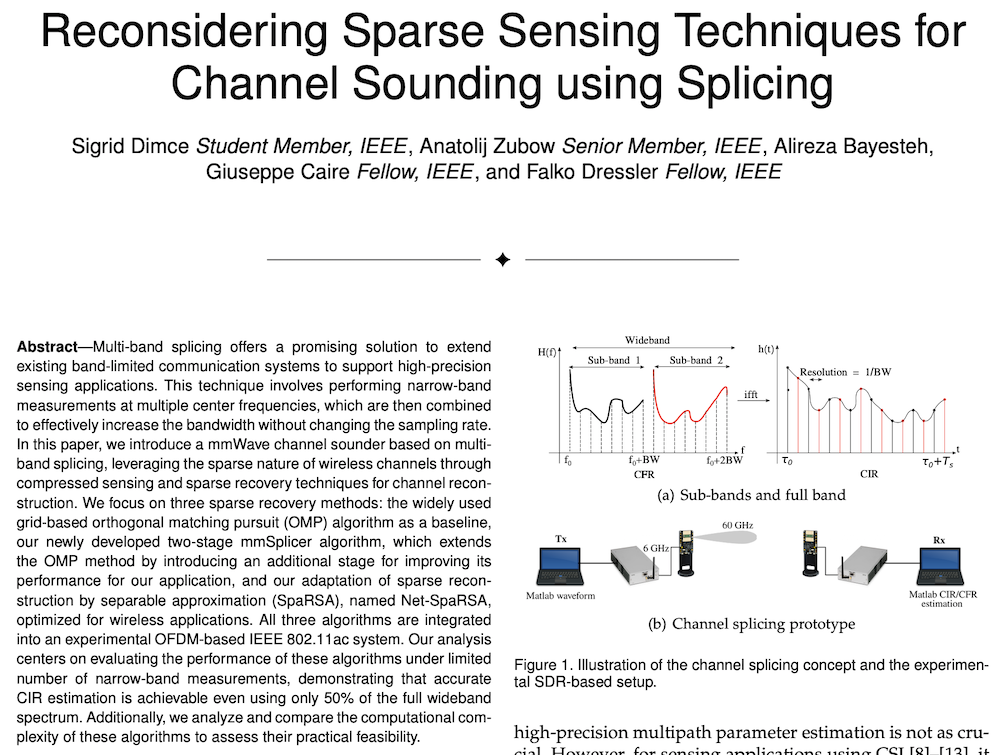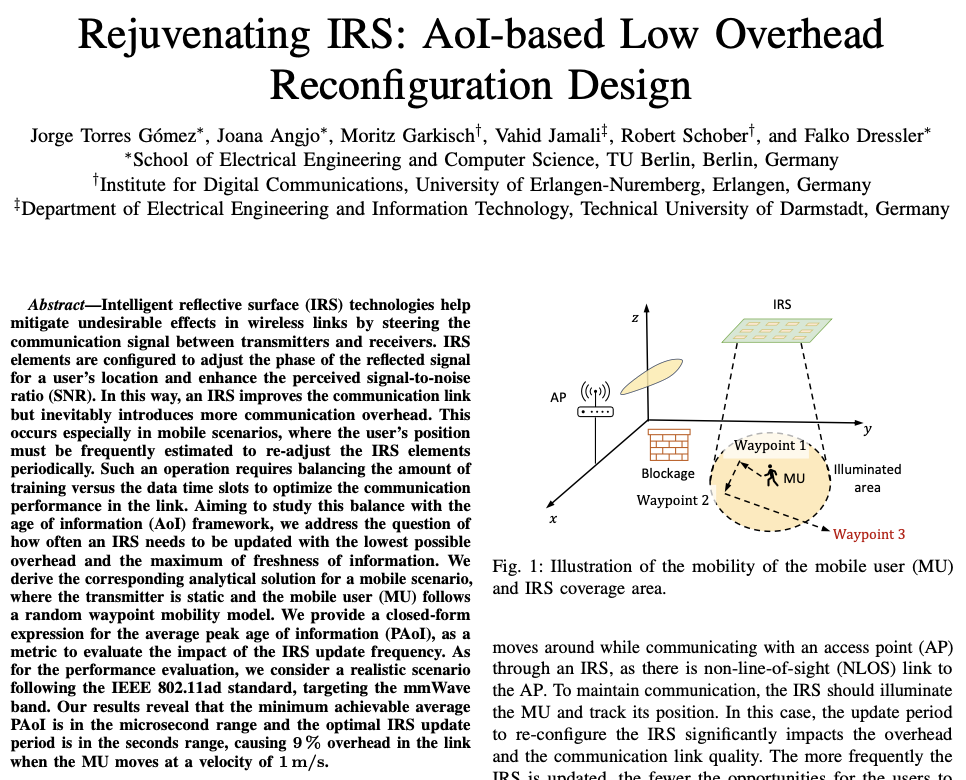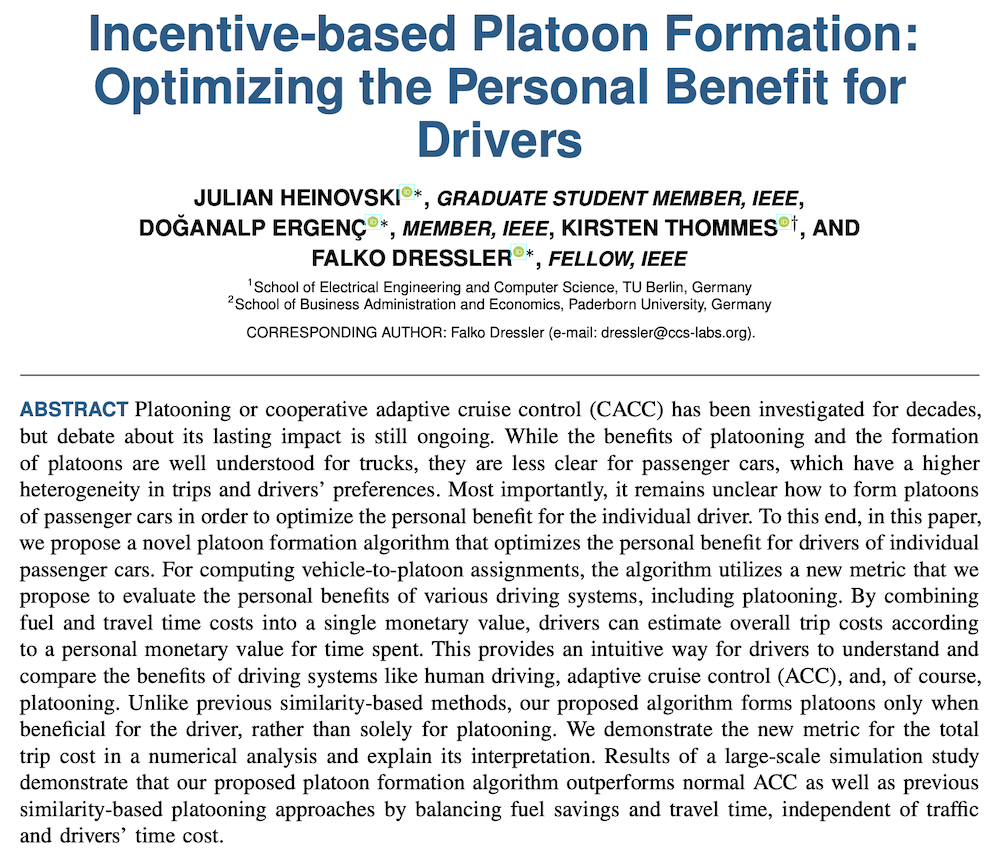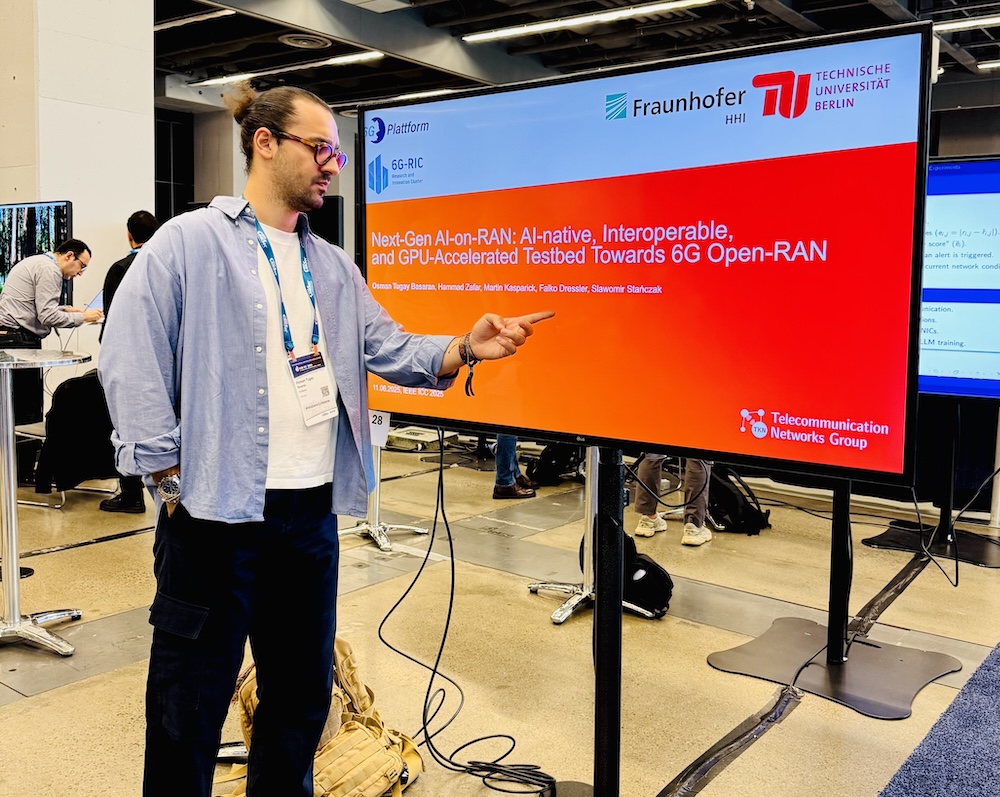Literature Database Entry
feng2017ave
J. Feng, Z. Liu, C. Wu and Y. Ji, "AVE: Autonomous Vehicular Edge Computing Framework with ACO-Based Scheduling," IEEE Transactions on Vehicular Technology, vol. 66 (12), pp. 10660–10675, December 2017.
Abstract
With the emergence of in-vehicle applications, providing the required computational capabilities is becoming a crucial problem. This paper proposes a framework named autonomous vehicular edge (AVE) for edge computing on the road, with the aim of increasing the computational capabilities of vehicles in a decentralized manner. By managing the idle computational resources on vehicles and using them efficiently, the proposed AVE framework can provide computation services in dynamic vehicular environments without requiring particular infrastructures to be deployed. Specifically, this paper introduces a workflow to support the autonomous organization of vehicular edges. Efficient job caching is proposed to better schedule jobs based on the information collected on neighboring vehicles, including GPS information. A scheduling algorithm based on ant colony optimization is designed to solve this job assignment problem. Extensive simulations are conducted, and the simulation results demonstrate the superiority of this approach over competing schemes in typical urban and highway scenarios.
Quick access
Original Version ![]() (at publishers web site)
(at publishers web site)
BibTeX ![]()
Contact
J. Feng
Z. Liu
C. Wu
Y. Ji
BibTeX reference
@article{feng2017ave,
author = {Feng, J. and Liu, Z. and Wu, C. and Ji, Y.},
doi = {10.1109/TVT.2017.2714704},
title = {{AVE: Autonomous Vehicular Edge Computing Framework with ACO-Based Scheduling}},
pages = {10660--10675},
journal = {IEEE Transactions on Vehicular Technology},
issn = {1939-9359},
publisher = {IEEE},
month = {12},
number = {12},
volume = {66},
year = {2017},
}
Copyright notice
Links to final or draft versions of papers are presented here to ensure timely dissemination of scholarly and technical work. Copyright and all rights therein are retained by authors or by other copyright holders. All persons copying this information are expected to adhere to the terms and constraints invoked by each author's copyright. In most cases, these works may not be reposted or distributed for commercial purposes without the explicit permission of the copyright holder.
The following applies to all papers listed above that have IEEE copyrights: Personal use of this material is permitted. However, permission to reprint/republish this material for advertising or promotional purposes or for creating new collective works for resale or redistribution to servers or lists, or to reuse any copyrighted component of this work in other works must be obtained from the IEEE.
The following applies to all papers listed above that are in submission to IEEE conference/workshop proceedings or journals: This work has been submitted to the IEEE for possible publication. Copyright may be transferred without notice, after which this version may no longer be accessible.
The following applies to all papers listed above that have ACM copyrights: ACM COPYRIGHT NOTICE. Permission to make digital or hard copies of part or all of this work for personal or classroom use is granted without fee provided that copies are not made or distributed for profit or commercial advantage and that copies bear this notice and the full citation on the first page. Copyrights for components of this work owned by others than ACM must be honored. Abstracting with credit is permitted. To copy otherwise, to republish, to post on servers, or to redistribute to lists, requires prior specific permission and/or a fee. Request permissions from Publications Dept., ACM, Inc., fax +1 (212) 869-0481, or permissions@acm.org.
The following applies to all SpringerLink papers listed above that have Springer Science+Business Media copyrights: The original publication is available at www.springerlink.com.
This page was automatically generated using BibDB and bib2web.

